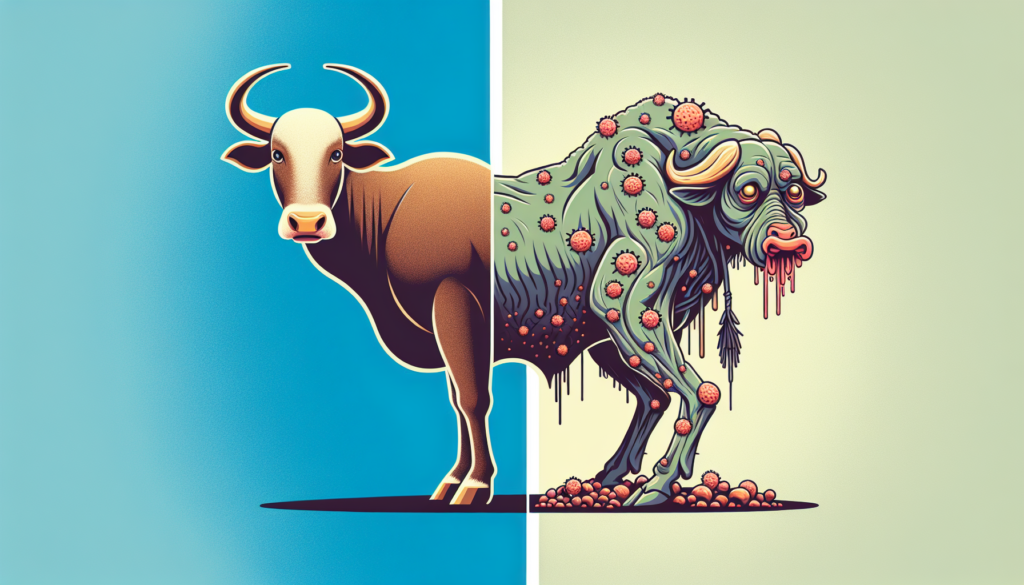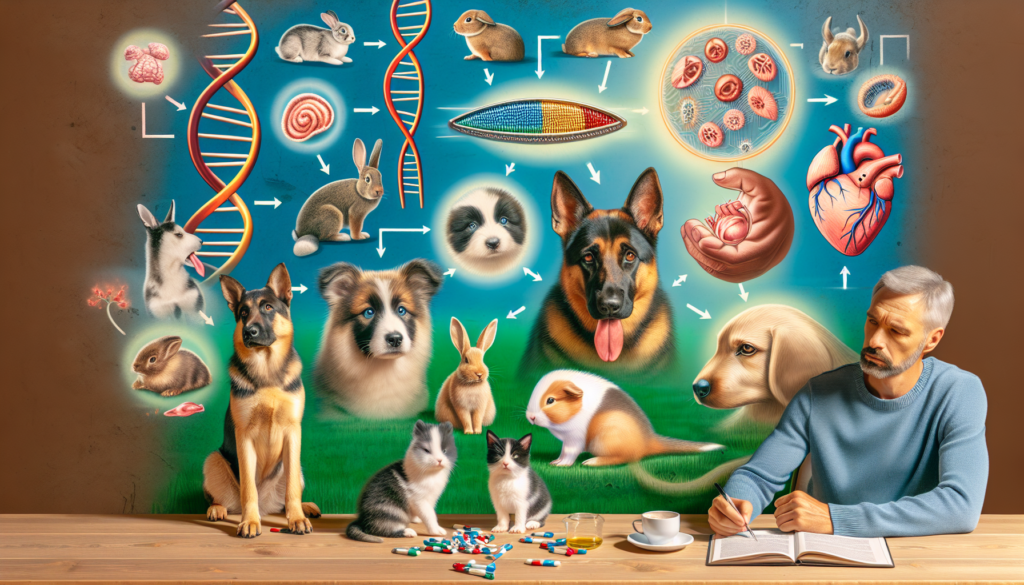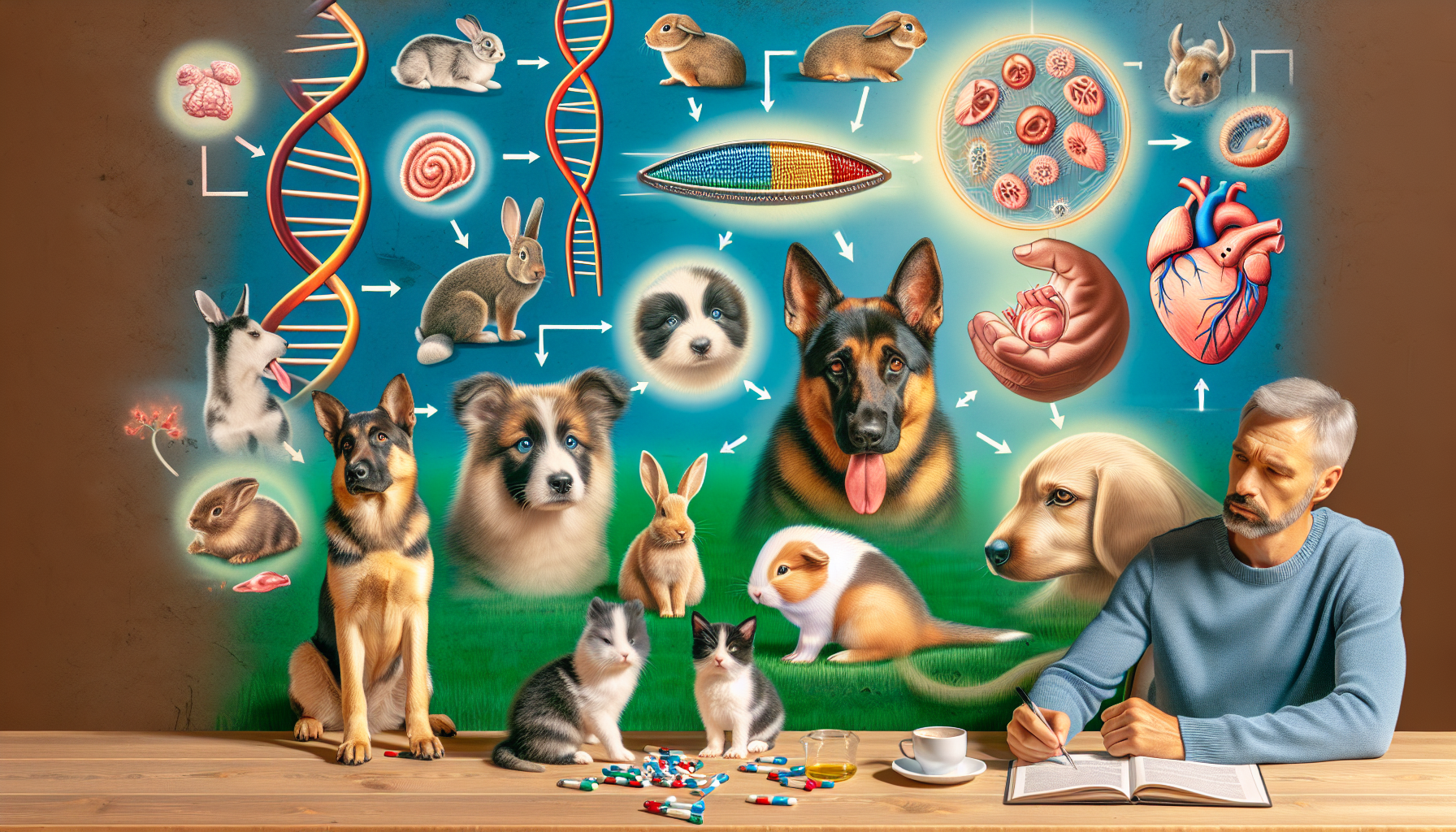In this article, you will explore the significant impact that overbreeding has on the overall health and well-being of animals. Overbreeding, a growing concern in the animal breeding industry, can lead to a multitude of health issues, both physical and genetic, for the animals involved. By understanding the consequences of overbreeding, we can work towards promoting responsible breeding practices and ensuring the overall welfare of our beloved animal companions.
The Impact of Overbreeding on Animal Health
Introduction to Overbreeding
Overbreeding refers to the process of breeding animals excessively and without adequate consideration for their health and well-being. This practice is often driven by human desires for certain physical traits or characteristics in animals, leading to the production of litters far beyond what a species would naturally produce. While it may seem harmless or even beneficial in some cases, overbreeding can have severe consequences for the health and welfare of animals.
Health Issues Caused by Overbreeding
Overbreeding can result in a range of health issues for animals, particularly those bred for specific physical attributes. One of the most significant concerns is the prevalence of congenital diseases and genetic disorders. When animals are bred repeatedly within a limited gene pool, the likelihood of inheriting harmful genetic traits increases significantly. This can manifest in conditions such as hip dysplasia in certain dog breeds or heart conditions in certain cat breeds.
Congenital Diseases and Genetic Disorders
Congenital diseases and genetic disorders are conditions that animals are born with due to inherited genetic mutations or abnormalities. These diseases can have a profound impact on an animal’s quality of life, often requiring extensive medical attention and lifelong management. Breeding practices that prioritize appearance over overall health contribute to the perpetuation of these conditions, as individuals with desirable physical traits are frequently chosen as breeding stock, regardless of their underlying genetic health.
Weakened Immune Systems
Overbreeding can also compromise an animal’s immune system, making them more susceptible to various infections and diseases. Intensive and inadequate breeding practices can result in weakened immune responses due to the stress placed on an animal’s body. In addition, offspring from overbred parents may inherit a compromised immune system, leaving them vulnerable to even minor health threats. This weakened immunity can lead to more frequent illnesses and prolonged recovery periods.
Increased Risk of Infections and Diseases
In conjunction with weakened immune systems, overbred animals are at an increased risk of developing various infections and diseases. Due to the increased susceptibility, they may contract illnesses more easily and struggle to fight them off effectively. Overbreeding can also contribute to the spread of infectious diseases within populations, as the concentrated breeding of animals can create an environment conducive to the rapid transmission of pathogens.
Structural and Orthopedic Problems
Certain breeds of animals are prone to structural and orthopedic problems due to excessive breeding. This is particularly evident in dogs and cats bred for specific physical characteristics, such as short legs or elongated bodies. These traits, while visually appealing, often come with significant health implications. For example, overbred animals may experience issues like intervertebral disc disease or patellar luxation, which can lead to chronic pain, mobility issues, and a reduced quality of life.
Respiratory and Cardiovascular Conditions
Overbreeding can also result in increased occurrences of respiratory and cardiovascular conditions in animals. Breeds with pushed-in faces or flattened skull shapes, such as certain dog breeds like Bulldogs or Pugs, are particularly susceptible to respiratory issues. Their narrow airways and elongated soft palates can cause difficulty breathing, resulting in labored breathing, snoring, and a predisposition to heat intolerance. Similarly, certain cat breeds, like Persians, may experience respiratory complications due to their brachycephalic features.
Reproductive Complications
Another significant consequence of overbreeding is the prevalence of reproductive complications in animals. Breeding animals excessively, particularly females, can lead to a range of reproductive issues, including difficulties during labor and delivery. Animals bred at a younger age and with shorter intervals between pregnancies are at an increased risk of complications such as dystocia (difficult or obstructed labor) and uterine infections. These complications can be life-threatening to both the mother and her offspring.
Behavioral and Psychological Disorders
Overbreeding can also contribute to the development of behavioral and psychological disorders in animals. Breeding for physical traits without considering the overall temperament and behavior of the animals can lead to the perpetuation of negative traits. Animals may exhibit fearfulness, aggression, or anxiety due to genetic predispositions or inadequate socialization. These behavioral issues can significantly impact their well-being and their ability to form positive relationships with humans and other animals.
Reduced Lifespan and Quality of Life
Ultimately, overbreeding has profound implications for the lifespan and quality of life of animals. Animals bred excessively and without consideration for their overall health are more likely to experience shorter lifespans and a decreased quality of life. The prevalence of genetic disorders, weakened immune systems, and a range of health complications can significantly reduce an animal’s overall well-being and impact their ability to lead happy and healthy lives.

Environmental Impact of Overbreeding
Overpopulation and Strain on Resources
Overbreeding contributes to overpopulation, particularly of certain species or breeds, which can place a significant strain on available resources. The increased numbers of animals needing care and support can overwhelm animal welfare organizations, shelters, and rescue groups. The demand for food, water, and shelter for these animals becomes unsustainable, leading to overcrowded and inhumane conditions in some cases.
Decline in Genetic Diversity
Overbreeding often involves the repeated breeding of closely related individuals within a limited gene pool. This practice leads to a decline in genetic diversity within a population, which can have detrimental effects on the long-term survival and adaptability of a species. With reduced genetic variation, animals become more susceptible to disease, environmental changes, and other factors that can impact their ability to thrive.
Loss of Natural Adaptations and Survival Skills
Continuous overbreeding can result in the loss of natural adaptations and survival skills that animals possess in the wild. When breeds are selectively bred for specific traits, other advantageous characteristics may be lost along the way. For example, certain dog breeds bred for appearance may lose their ability to hunt, track scents, or navigate specific terrains. This loss of natural adaptations can make animals more vulnerable to changing environmental conditions and reduce their chances of survival.
Negative Effect on Ecosystems
Overbreeding can have negative effects on ecosystems, especially when certain breeds or species are introduced into environments where they are not naturally found. These animals may compete with native species for resources, disrupt natural food chains, and cause ecological imbalances. Additionally, overbred animals that are released or escape into the wild can potentially become invasive species, further destabilizing ecosystems and threatening biodiversity.
Spread of Invasive Species and Diseases
In some cases, overbreeding can lead to the spread of invasive species and diseases. When overbred animals are released or escape into natural habitats, they may reproduce rapidly and outcompete native species for resources. These invasive animals can disrupt ecosystems, displace native species, and cause irreparable harm to delicate habitats. Moreover, the concentrated breeding of animals increases the risk of transmitting infectious diseases to other animals within the same species or to different species.

Economic Consequences of Overbreeding
Burden on Animal Welfare Organizations
Overbreeding puts a significant burden on animal welfare organizations, as they are often tasked with caring for the surplus of animals produced. The increased demand for shelter, medical care, and resources places a strain on these organizations’ limited budgets and capacities. Animal welfare organizations face challenges in finding suitable homes for all animals, leading to overcrowded shelters and potential euthanasia as a form of population control.
Increased Healthcare Costs
The healthcare costs associated with overbreeding can be substantial. Animals that are prone to genetic disorders or other health issues often require ongoing medical attention, specialized treatments, and surgeries. The expenses incurred to provide adequate veterinary care can be overwhelming for both animal owners and animal welfare organizations. Additionally, the increased prevalence of infectious diseases among overbred animals can also lead to higher healthcare costs for their treatment and prevention.
Decreased Productivity in Breeding Industries
Overbreeding can negatively impact the productivity and profitability of breeding industries. When animals are repeatedly bred without sufficient time for recovery and when genetic health is not prioritized, the subsequent generations may have reduced fertility rates and overall reproductive performance. This decrease in productivity can lead to financial losses for breeders and ultimately impact the availability of certain breeds in the market.
Financial Impact on Pet Owners
The financial impact of overbreeding extends to pet owners as well. Animals with genetic disorders or predispositions to certain health conditions often require extensive medical care and ongoing treatment. This can result in significant veterinary bills and increased expenses for pet owners. Furthermore, the emotional toll of caring for a sick or disabled animal can also impact an owner’s finances, as they may need to invest in specialized equipment, medications, or professional assistance to ensure their pet’s well-being.
In conclusion, overbreeding has far-reaching consequences for the health, environment, and economy. The health issues caused by overbreeding can significantly reduce an animal’s quality of life and lifespan. The environmental impact encompasses overpopulation, loss of genetic diversity, and disruption of ecosystems. From an economic perspective, overbreeding places financial burdens on animal welfare organizations, increases healthcare costs, decreases productivity in breeding industries, and impacts the finances of pet owners. Recognizing the detrimental effects of overbreeding on animal health is vital for promoting responsible breeding practices and ensuring the well-being of animals.

